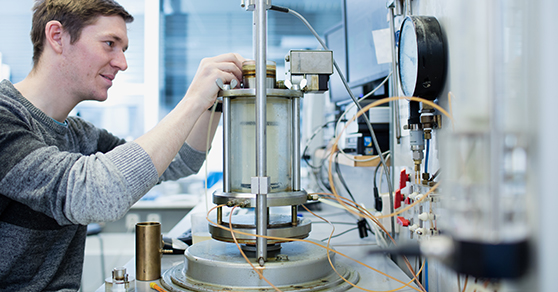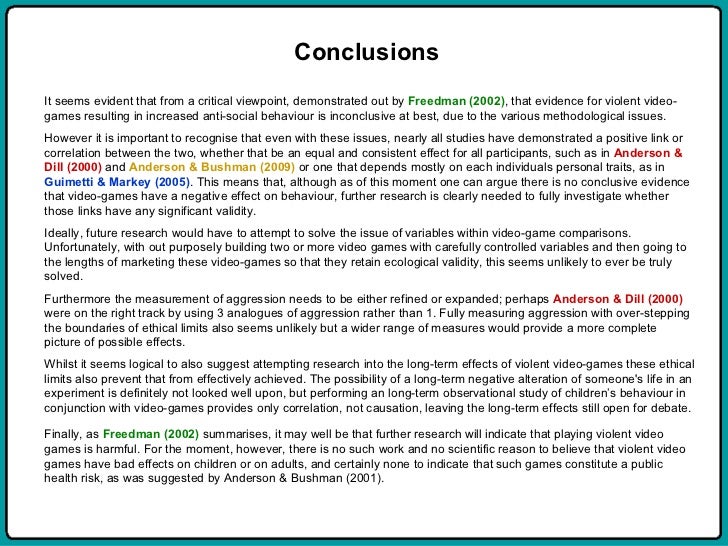
Jun 02, · What a PhD in Robotics is Really Like Introduction to the PhD. A typical PhD is a 3 year (they sometimes go longer than 3 years but 3 years is the aim), full An Opportunity to Dive Deeply into a Problem. A PhD is an opportunity to deeply investigate an interesting, not yet A Big But Not Too PhD Thesis Archives - The Robotics Institute Carnegie Mellon University Doctorate Degree in Robotics. The Robotics Ph.D. program of study comprise a minimum of credits, including at least 48 credits of coursework and 36 credits of Thesis (ROB ). The balance may either constitute additional coursework and/or thesis credits or come from other sources such as research, reading and conference, blogger.comted Reading Time: 5 mins
PhD Robotics and Autonomous Systems | Study at Bristol | University of Bristol
FARSCOPE aims to train the next generation of innovators in the growing field of robotics and autonomous systems RAS, phd thesis robotics. Phd thesis robotics vision of the programme is ubiquity - or robots everywhere - enabling students to think beyond a robot's technology and about its environment.
Our four-year phd thesis robotics leads to the award of a joint PhD degree from both the University of Bristol and the University of the West of England. A PhD is a uniquely challenging and rewarding endeavour, especially in a cutting-edge field such as RAS.
We have enhanced the standard individual PhD in various ways to give you the best possible start on your RAS research and innovation career. This programme includes:. You will have your choice of specialist topics from more than 50 academic supervisors, phd thesis robotics. The centre is based at the Bristol Robotics Labthe largest specialist robotics laboratory in the UK, plus you'll have access to all the combined facilities of both partner universities.
Fees are subject to an annual review. For programmes that last longer than one year, please budget for up to a five per cent increase in fees each year. Find out more about tuition fees. University of Bristol students and graduates can benefit from a ten per cent reduction in tuition fees for postgraduate study.
Check your eligibility for an alumni scholarship. The FARSCOPE CDT programme has funds to support up to ten students per year including fees, stipend at standard RCUK ratesresearch and travel expenses. Further information on funding for prospective UK, EU and international postgraduate students. You will start working on your initial research project in your second term, leading to dissemination of your research at the end of your first year.
You then progress to your major PhD research project, for which you may choose to continue your initial project or to pursue a new topic. Visit our programme catalogue for full details of the structure and unit content for the first year of this programme. An upper second-class honours degree in an engineering, physics, mathematics or related subject. Other disciplines will be considered on a case-by-case basis. Students who have completed our MSc in Robotics may be considered, on a case-by-case basis, for direct entry into the second year of this PhD programme.
This will be subject to interview, which phd thesis robotics include a qualifying presentation on research. See international equivalent qualifications on the International Office website. If English is not your first language, you need to meet this profile level: Profile E Further information about English phd thesis robotics requirements and profile levels.
Read the programme admissions statement for important information on entry requirements, phd thesis robotics application process and supporting documents required. Admissions statement. The Bristol Robotics Laboratory is involved in a wide range of robotics research projects both nationally and internationally. Our research portfolio spans a number of different themes:.
Aerial Robots Research into intelligent aircraft, including autonomous micro air vehicles, specialising in their guidance and control. Assisted Living Research into interactive assistive robots and smart phd thesis robotics systems to create person-focused innovative assistive care solutions that support independent living.
Bioenergy and Self Sustainable Systems Research into overcoming the energy barrier to deploying autonomous robots in remote phd thesis robotics by utilising microbial fuel cells. Biomimetic and Neuro-robotics Developing robots that can operate in challenging environments, beyond the limitations of conventional sensory devices.
Connected Autonomous Vehicles Research and development into all aspects of connected autonomous vehicles. Robots for Hazardous Environments Research and development in all aspects of robotics for hazardous environments and autonomous system support.
Medical Robotics Robotic technology is able to provide precise and accurate sensing and movement capabilities, thus improving patient and surgeon experience. Non-linear Robotics Research towards bringing future generations of humans and humanoid robots together, which requires safe interaction of humans with robots.
Robot Vision Developing robots that are able to analyse what they see and make decisions in response to instructions by humans. Robotic Ethics Researching robotic ethics and ethical robots, phd thesis robotics. The former is concerned with ethical use of autonomous systems, while the latter is concerned with how autonomous systems can themselves be ethical.
Safe Human-Robot Interaction Investigating physical and behavioural safety for human-robot interactions, ensuring that a robot is capable of performing cooperative tasks with humans. Smart Automation Research into the next generation of advanced robotics engineering systems: robots that can make human-like decisions while carrying out manufacturing processes. Soft Robotics Soft robotics seeks to make robots that are soft, flexible and compliant, just like biological organisms, phd thesis robotics.
Swarm Robotics A combination of environmental, social and internal cues could result at the group level in components believed to be important in the emergence of self-organised behaviour. Tactile Robotics Robots with human-like tactile dexterity would transform our economy and society.
But how do you give robots a sense of touch? Phd thesis robotics and Validation for Safety in Robots Investigating all aspects of safety for verification and validation purposes and to enable safe human-robot interaction in cooperative tasks. Students graduating from this programme will be suited to careers in industry, as ambassadors for robotics across many different sectors, or starting their own enterprises.
David BartonLecturer, Engineering Phd thesis robotics, UoB. Antonia TzemanakiLecturer in Robotics, UoB, Bristol Robotics Labmedical robotics and wearables. Ben HicksProfessor, phd thesis robotics, Engineering Systems and Design, UoB. Weiru LiuPhd thesis robotics of Artificial Intelligence, UoBartificial intelligence. Manuel GiulianiProfessor in Embedded Cognitive AI for Robotics, BRLHuman-robot interaction. John ParkinProfessor of Transport Engineering, UWEtransport engineering.
Lili TaoSenior Lecturer in Machine Vision, BRLHuman motion. Paul MarshallSenior Lecturer in Computer Science, UoBHuman-robot interaction. Steve BattleSenior Lecturer in Information Science, UWECognitive robotics. Richard OwenProfessor in Innovation Management, UoBResponsible innovation.
Chris AlfordAssociate Professor in Applied Psychology, UWEApplied Psychology. Richard ChestonProfessor of Mental Health Research dementiaUWEMental health and dementia. Allie TurtonSenior Lecturer, UWEOccupational Therapy. Professor Andrew AdamatzkyProfessor in Unconventional Computing, University of the West of England, Bristol, UWEChemical robotics; living controller for robots; unconventional computing. Dr Gary AtkinsonSenior Lecturer Engineering, Design and Mathematics, UWEMachine vision.
Mr Paul BremnerResearch Fellow, UWE. Professor Stuart BurgessProfessorBio-inspired design and robotics, phd thesis robotics. Dr Tilo BurghardtLecturerApplied computer vision; visual animal biometrics.
Dr Jeremy BurnReaderBiomechanics and locomotion. Dr Praminda Caleb-SollySenior LecturerUser experience design. Dr Andrew CalwayReaderEnergy harvesting. Dr Andrew ConnLecturerFlapping wing vehicles; soft robotics. Dr Dima DamenLecturerActivity analysis; phd thesis robotics vision.
Dr Kerstin EderReaderDesign automation and verification. Dr Khemraj EmrithReseach Associate, Engineering, Design and Mathematics, UWEMachine vision. Dr Appolinaire EtoundiSenior LecturerArtificial Lower Limb; Bio-inspired Robotics; Mechatronics. Professor Charl FaulProfessorMaterials Chemistry. Dr Luca GiuggioliSenior LecturerDynamics of multiagent behaviour.
Dr Sabine HauertLecturer, Engineering MathsSwarming nanobots for biomedical applications, phd thesis robotics. Dr Helmut HauserLecturer. Dr Marc HolderiedSenior Lecturer, Biological SciencesEcology and behaviour of bats. Dr Martin HomerSenior LecturerApplied phd thesis robotics mathematics. Dr Chris KentLecturerPerceptual cognition.
Ben De Lacy CostelloSenior Research Fellow, Centre for Research in Analytical, Material and Sensor Sciences, UWE, phd thesis robotics. Professor Jonathan LawryProfessorUncertainty and risk. Dr Ute Leonardsphd thesis robotics, ReaderHuman-robot interaction; visual perception. Dr Nathan LeporaLecturerBiomimetics and perception; computational neuroscience. Dr Walterio Mayol-Cuevasphd thesis robotics, ReaderVision.
Professor Chris MelhuishProfessorAutonomous robotics. Dr Thomas MitchellSenior LecturerMusic and human machine interaction. Dr Martin PearsonResearch Fellow in Engineering Design and Mathematics, UWEBiometric robots, phd thesis robotics.
Professor Anthony PipeProfessorSafe HRI and machine learning. Professor Arthur Richardsphd thesis robotics, ReaderAutonomous flight. Dr Thomas RichardsonSenior LecturerFlight dynamics. Professor Daniel RobertReaderBiomimetics. Dr Jonathan RossiterReaderphd thesis robotics, Soft robotics and tactile interaction. Dr Tom ScottReaderGeochemistry and metallurgy of uranium. Professor Melvyn SmithProfessorMachine vision.
Dr Matthew StudleySenior LecturerMachine learning: bio-inspired robotics. Dr Carwyn WardLecturerphd thesis robotics, Composites design, processing and manufacture. Professor Eddie WilsonProfessorIntelligent transport systems. Dr Shane WindsorLecturerphd thesis robotics, Bio-inspired flight.
PhD Thesis Defense Binghan He
, time: 49:11What a PhD in Robotics is Really Like | blogger.com

Apr 06, · thesis_overview. Published at × in Overview. ← Previous Offered jointly by the College of Computing and the College of Engineering, the Ph.D. program in Robotics is the first truly multidisciplinary robotics degree of its kind in the world—and only the second robotics doctorate offered in the U.S. Program of Study. The main emphasis of the Ph.D. program is the successful completion of an original and independent research thesis DEEP LEARNING FOR ROBOTICS Ian Lenz, Ph.D. Cornell University Robotics faces many unique challenges as robotic platforms move out of the lab and into the real world. In particular, the huge amount of variety encountered in real-world environments is extremely challenging for existing robotic control algorithms to handle

No comments:
Post a Comment